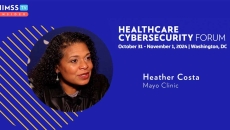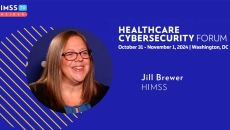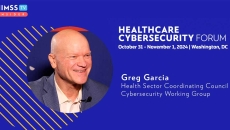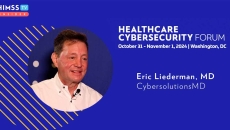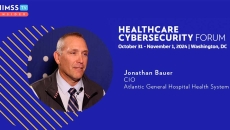Risk Management
Managing risk with third parties is crucial, as one piece of information will flow to 50 different data-sharing partners, such as pharmacies, says Lee Kim, senior principal for cybersecurity and privacy at HIMSS.
Hospitals can't wait for the perfect plan to prepare for a cyberattack or other kind of disruption, and should start with what they have, says Heather Costa, director of resilience for the Mayo Clinic.
Only a quarter of IT leaders and executives are confident about their cyberdefense strategies, while a majority are at least somewhat confident, says Jill Brewer, market insights lead at HIMSS.
Patients suffer the health consequences of attacks that delay or disrupt care or result in ambulances being turned away, says Greg Garcia, executive director of the HSCC, Cybersecurity Working Group.
When hit, all hospital functions are severely impaired, including clinical care delivery, which can result in patient deaths, says Eric Liederman, CEO of CybersolutionsMD and former national leader of privacy, security and IT infrastructure at Kaiser Permanente.
Passwords don't need to be changed as often as every 90 days, but multifactor authentication is a must, says Jonathan Bauer, CIO Atlantic General Hospital Health System.
The report compares cost, care, patient experience and more to brick-and-mortar care, ahead of the expiration of the waiver.
CIOs and other IT leaders this year are expected to explore practical applications for AI, such as use in administrative functions, for which AI is ideally suited, says Greg Miller, vice president of business development at Carta Healthcare.
Deploying AI needs a strategy for use cases that starts with identifying problems that need to be solved, says Michael Pencina, director of Duke AI Health.
Sutter Health in California has collaborated with PointClickCare's ED Optimization to track patients who travel between ERs.

